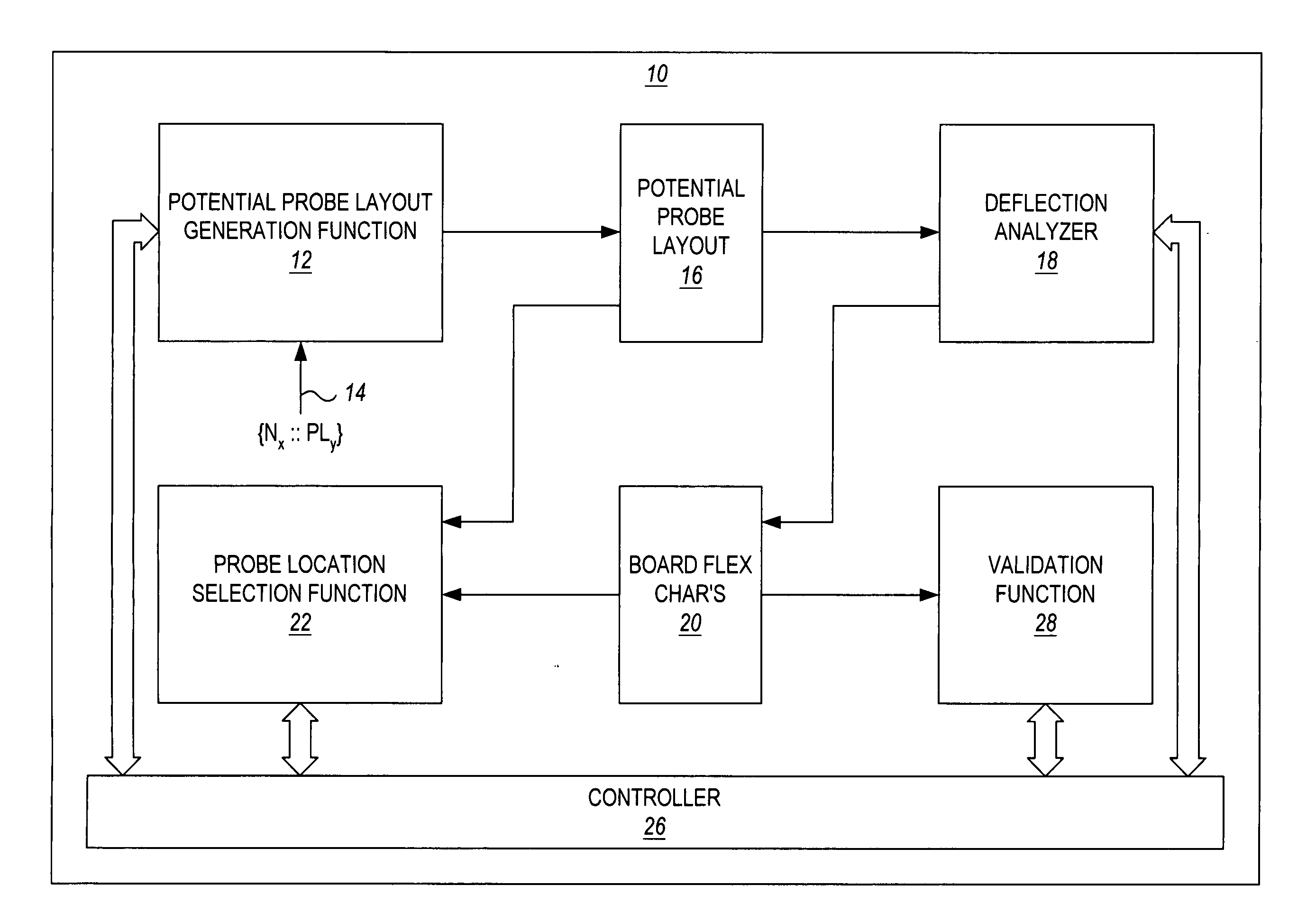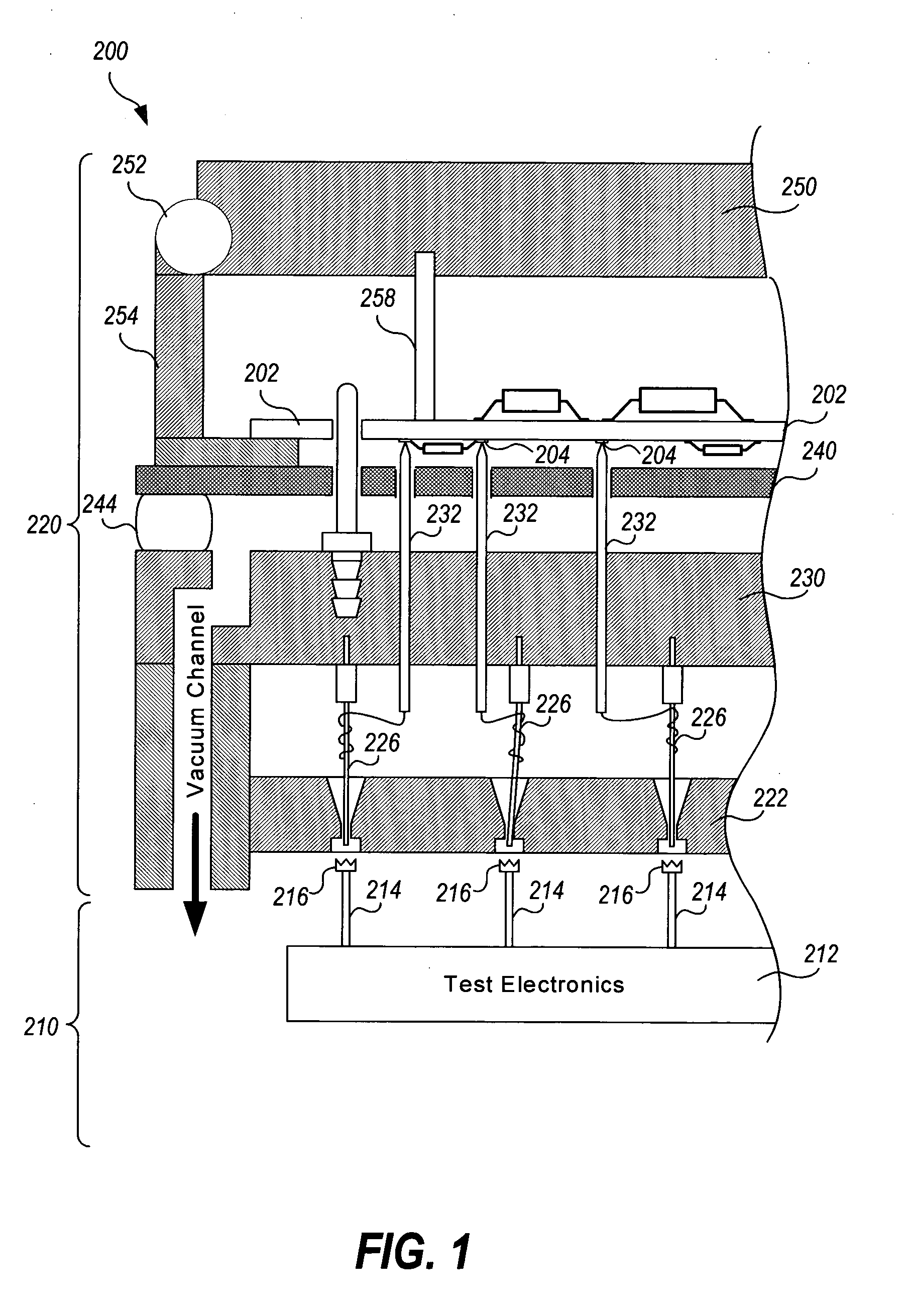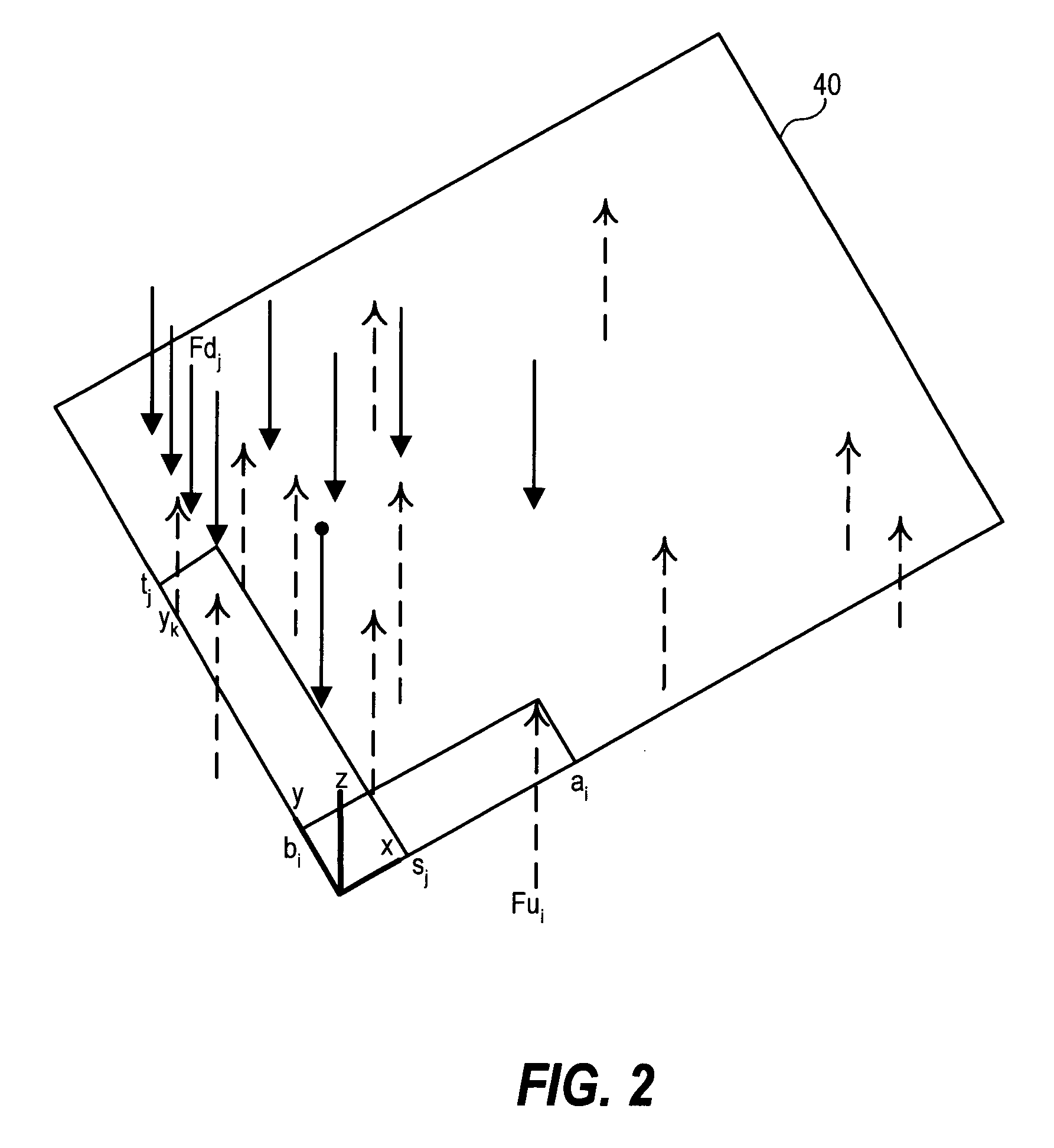Method and apparatus for determining probing locations for a printed circuit board
a printed circuit board and probing location technology, applied in the direction of printed circuit testing, measurement devices, instruments, etc., can solve the problem that the maximum board flex may still exceed the safe limits, and achieve the effect of reducing the calculation time and minimizing the board flex
- Summary
- Abstract
- Description
- Claims
- Application Information
AI Technical Summary
Benefits of technology
Problems solved by technology
Method used
Image
Examples
Embodiment Construction
[0026] For purposes of clarity, the following terms are defined:
[0027]“net”—a signal transmission line which passes signals between two or more endpoints over an electrically conductive path; may be implemented as one or more of any of, including combinations of, the following: a trace, a via, a wire, a component lead, a solder ball, a wire bond, or any other electrically conductive element electrically connected between the two or more endpoints and through which the signal passes;
[0028]“test pad”—a point on a net accessible for probing, typically characterized by a surface area large enough to accommodate a probe head;
[0029]“probing location”—a test pad that is or is selected to be probed;
[0030]“fixture probe”—an electrically conductive element of a tester fixture which operates as a passive transmission line at least between a first end and a second end of the electrically conductive element, the first end configured to electrically contact a test pad of a circuit and the sec...
PUM
 Login to View More
Login to View More Abstract
Description
Claims
Application Information
 Login to View More
Login to View More - R&D
- Intellectual Property
- Life Sciences
- Materials
- Tech Scout
- Unparalleled Data Quality
- Higher Quality Content
- 60% Fewer Hallucinations
Browse by: Latest US Patents, China's latest patents, Technical Efficacy Thesaurus, Application Domain, Technology Topic, Popular Technical Reports.
© 2025 PatSnap. All rights reserved.Legal|Privacy policy|Modern Slavery Act Transparency Statement|Sitemap|About US| Contact US: help@patsnap.com



